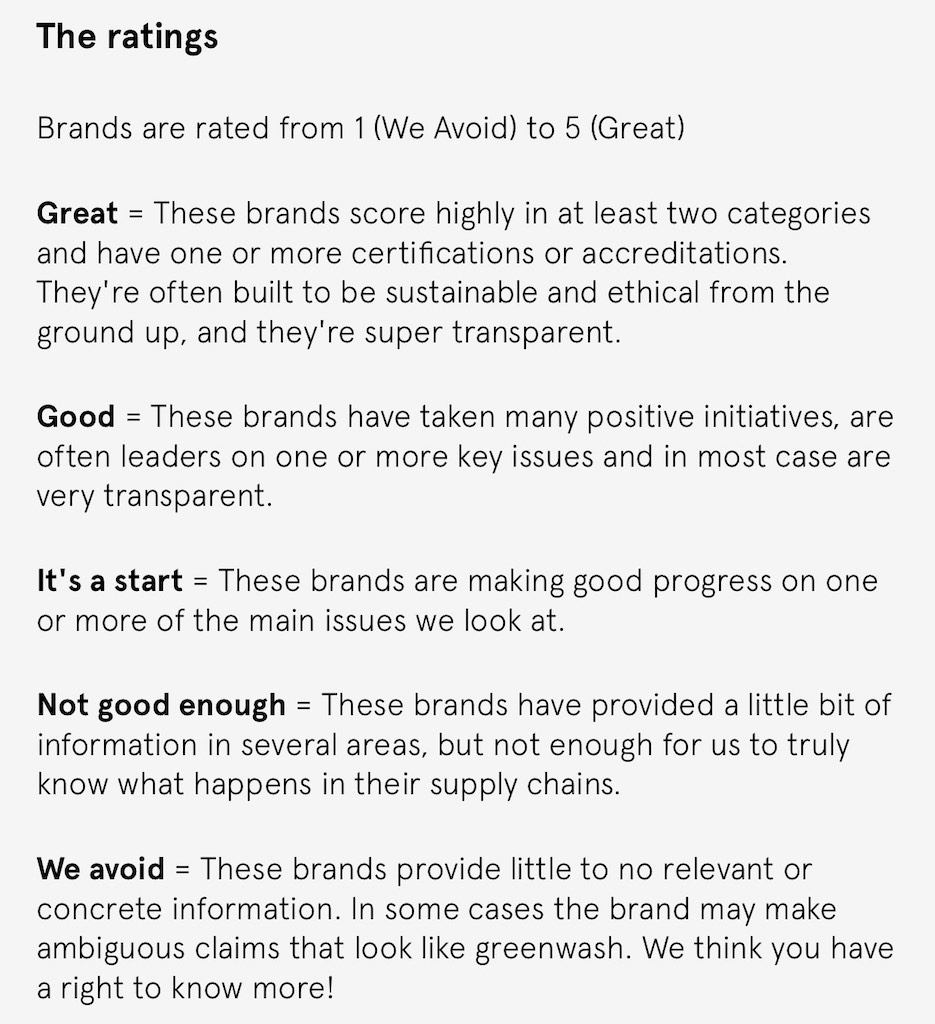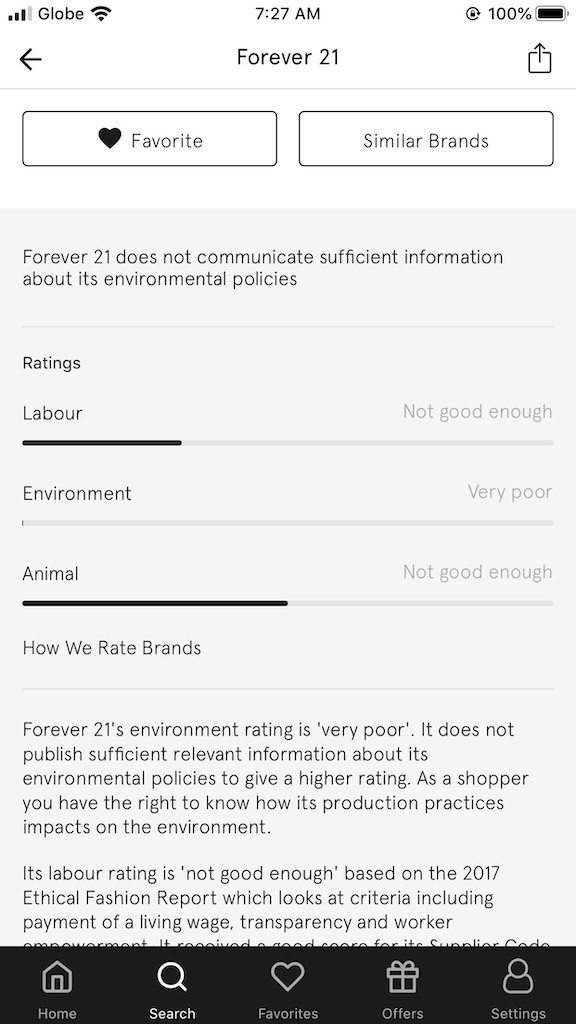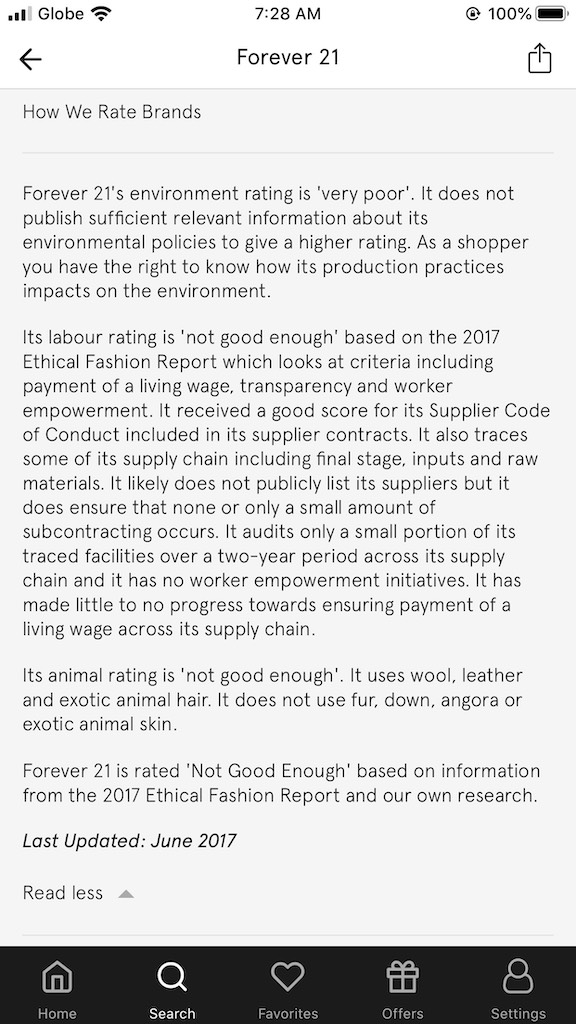We’re slowly seeing how fast fashion takes its toll on the environment. The fashion industry is one of the biggest pollutants in the world, accounting for 40 percent of carbon emission in 2014 alone. Human labor has also been at risk with fast fashion companies disregarding proper ethical practices. Animal cruelty has also been at the center of the industry.
[READ: What happens when fast fashion doesn’t sell enough?]
As more leading clothing brands pledge to make clothes that are more eco-friendly, it’s also important on our part to keep a close eye on how these brands follow environmentally-friendly processes.
[READ: What is slow fashion and why should you care?]
Luckily, the mobile application “Good on You” can help consumers determine fashion brands that follow ethical practices in terms of their environmental impact, human labor practices, and animal welfare.
The three categories (labor, environment, and animal) are measured as one of the following: great, good, it’s a start, not good enough, and we avoid. This way, you can get a glimpse at how these brands practice mass garment production while also finding out considerable alternatives.
For instance, we tried using the app to rate Forever 21:
[one_half padding=”0 5px 0 5px”]
[/one_half][one_half_last padding=”0 5px 0 5px”]
[/one_half_last]
Aside from the list of alternatives, Good on You also has articles where you can read about sustainable and ethical clothing and how brands fight climate change through their change in clothing production.
In fact, there are a lot of ways to help protect the environment, especially when it comes to making decisions as consumers. There’s always the next step in considering change and it might just be at our fingertips.
Header photo courtesy of Duy Hoang on Unsplash
Get more stories like this by subscribing to our weekly newsletter here.
Read more:
These bed sheets are made out of raw bamboo
Tela’s retail line is made from Bayo’s excess fabric
This is what the ban on secondhand goods means for the circular economy













































